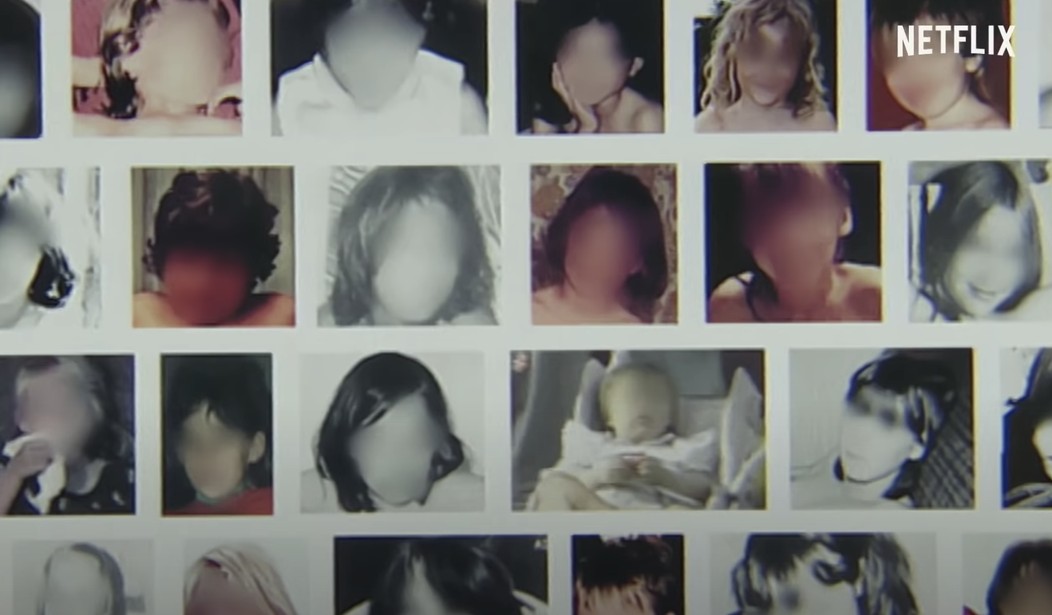If you are looking for binge-worthy content that will inform you about a global scandal, watch “The Disappearance of Madeleine McCann” on Netflix. Even if you think you know everything about the story, you don’t. It’s full of twists and turns that take the viewer on a roller coaster of emotions from agony to disbelief and back again. The main takeaway for me, besides stay the hell out of Portugal, was deep horror at the exposure of what seems like a massive international failure to take child-sex rings seriously.
How could that be, you ask? Our government cares about these atrocities (unless billionaires like Jeffery Epstein are doing it). We’ve never seen his client list, have we? How many more like him are out there continuing this horror on the world’s children while governments look the other way?
There is a moment in the series where a Portuguese mother finds her missing son in a huge book found online showing thousands of exploited children being used by pedophiles. It is devastating. The series is a stunning indictment of our global failure to fight this scourge on humanity.
Homayra Sellier, president of Innocence in Danger, who appeared in episode seven, sounded the alarm.
On Internet, there are catalogs with children with ages, blonde, this, that. They are insane! What are our police doing? Why [is] this even possible? Why, when there is money missing from someone who has tax evasion [crimes] everybody’s on alert, we find the money, we find the person, we find everything! But when there are kids, there’s no one!
Human trafficking is a $150 billion booming business. Different investigators who took part in the series say no international information-sharing standards exist to track and infiltrate these networks. How can that be? The United Nations issued the first report on human trafficking in 2009, which identified a key problem that could be greatly improved with information-sharing and data collection that appears to be left undone.
The statistics collected and presented in this report show that countries responded positively to the comprehensive data collection effort undertaken under the UN.GIFT initiative. The quantity of information collected under this research activity is the largest ever. This includes information concerning more than 50,000 offenders and victims of trafficking in persons officially identified by the State authorities of 155 countries and territories. It is necessary that this momentum not be lost and that measures be taken to improve information sharing on human trafficking. Without this effort, the international community will be fighting the problem blindfolded.
In 2009 there were six references in the report to information-sharing. By 2020 the report only had one mention of sharing and appears to still be asking for some kind of international effort.
The establishment of specialized agencies dedicated to preventing and combating trafficking in persons, as well as to assisting victims, can facilitate dialogue between these different areas of expertise and promote coordinated responses. Together with dedicated training of multidisciplinary investigation and prosecution units, this multisectoral approach can promote effective identification, protection and redress of victims, as well as investigative actions targeting the different forms of this crime, based on a victim-centred, child and gender sensitive, and human rights-based approach.
The State Department says it does coordinate with international agencies but reading their report is an exercise in depression. The section on Moldova reads like what we’re seeing in U.S. family courts.
Major political upheaval in 2019 and existing law enforcement deficiencies hindered government progress. The Center for Combating Trafficking in Persons (CCTIP), the specialized antitrafficking law enforcement body, continued to suffer from turnover of experienced staff, limiting its ability to investigate complex cases, including transnational criminal organizations or complicit government officials. In a case referred to CCTIP for investigation in 2019, observers reported alleged complicity by a Moldovan Border Police officer suspected in connection with exploiting a person with disabilities; the case remained ongoing at the end of the reporting period. Despite this report and a long history of complicity by government employees,the government did not report any investigations, prosecutions, or convictions of government employees complicit in human trafficking offenses.Furthermore, corruption in the judicial system remained an acute impediment to bringing traffickers to justice with prosecutors, members of the judiciary, and members of law enforcement implicated in corrupt practices. Courts frequently reversed convictions on appeal, sometimes without explanation or on weak grounds. Judges tended to re-qualify cases from trafficking crimes to crimes with lesser penalties, such as pimping, and issue disproportionate sentences to traffickers for the same crimes committed under the same circumstances. [Emphasis added]
What exactly we do or don’t have in the way of international information-sharing isn’t readily available. I hope it’s better than it appears. But listening to the experts working in the field featured in the docuseries about Madeleine McCann, it sounds unlikely.
It’s well-worth finishing all eight episodes. More public awareness might lead to a demand for more effort into the fight against human slavery.










